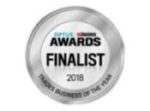An electrical energy efficiency audit is a calculation of the energy you’re using in your home or workplace, performed by professional electricians. This home energy audit will help you get to the bottom of excessive power bills, identifying what appliances and what areas of your home are using more energy than they should. You can then adjust your usage of them or replace them for more energy efficient models.
Saving energy is healthy for the environment plus it helps put more dollars in your pocket at the end of the month. If you want to take the step towards a more sustainable home, get in touch with us. We’ve been offering electrical services to Sydney since 1988, and a home energy audit and commercial property energy audit is part of what we do. Give us a call on 02 9700 9996 and let’s discuss the energy efficiency of your home today.
What We Look at in a Home Energy Audit

When we perform a home energy audit on your property, our trained electrician will comprehensively work through all aspects of your home associated with energy use. These include:
Hot Water System
At our energy audit, it’s important to check for any leaks in the hot water system to make sure it’s not wasting any energy. We also check if your system is on normal peak rate, or if it could be placed on an off-peak system to save costs. The other option is to go to an instantaneous electric hot water system, which only uses heat and energy when the tap is turned on. This is more efficient when compared to a storage tank that continually heats the water even when you are not using it.
Lighting
To assess the energy efficiency of lighting, we would check to see the quality of the lighting and the type of lights installed. Lower quality lighting can use more energy when in use. Additionally, LED lighting is energy saving and requires less maintenance over time.. We’ll take into account a number of factors and recommend changing to your lighting if required.
Swimming pool
One of the first questions we ask in a home energy audit is whether you have a swimming pool. If you do, we check to see if it’s heated, and whether the heating is gas or electric as gas is normally cheaper to run. Additionally we check if the filter and the heating can be placed on a time clock, which will ensure they are running only when needed.
Floor heating and towel rails
Floor heating and towel rails can be highly convenient and comforting on cold winter nights., but they can definitely put a dent in your power bill. One thing you can do to keep the costs as low as possible when using these, is to make sure they’re not running 24/7. Put them on timers to ensure they only heat when you will be using them.
Air Conditioning
Air con can be very expensive to run, so in our home energy audit we’ll always check the air conditioning. One of the best ways for energy saving on air conditioning systems is to install an inverter system. An inverter is a feature in the aircon system that allows the motor to vary its speed and only run when needed. This in turn saves you power, as the motor will only run to what is needed, rather than running at maximum capacity at all times.
Metering
Another part of your home energy audit is to check if your existing metering is up to current standards. Your electricity meter can run at a standard flat rate, which is one rate at all times of the day or week. Peak/off-peak metering involves a different electricity rate depending on the time of day it is. This means you could run your higher energy consuming appliances at the off peak times, to ensure you are getting the best rate at the times when you are using the most energy. To change your meter over from standard rate to off peak you would need a level 2 electrician from Glenco to complete the procedure for you.











